Certificates
0
Hours of post graduate study
0
Classes Taken
Data Engineering
The IBM Data Engineering Professional Certificate is an intensive program designed to prepare learners for modern data engineering roles. Covering key topics like data modeling, ETL development, SQL, big data tools, and data governance, it provides hands-on experience building scalable data pipelines and working with technologies such as Hadoop, Spark, and cloud-based data lakes. By completing the program, learners gain practical skills to design, implement, and manage robust data solutions that power business intelligence and analytics.
The IBM AI Engineering Professional Certificate is a hands-on program that builds practical skills in machine learning and deep learning. Covering topics like supervised and unsupervised learning, neural networks, and popular ML algorithms, it teaches learners to build and deploy models using Python libraries such as Scikit-Learn, TensorFlow, and PyTorch. Projects in computer vision, NLP, and recommendation systems help learners gain real-world experience and create a portfolio showcasing their AI engineering capabilities.
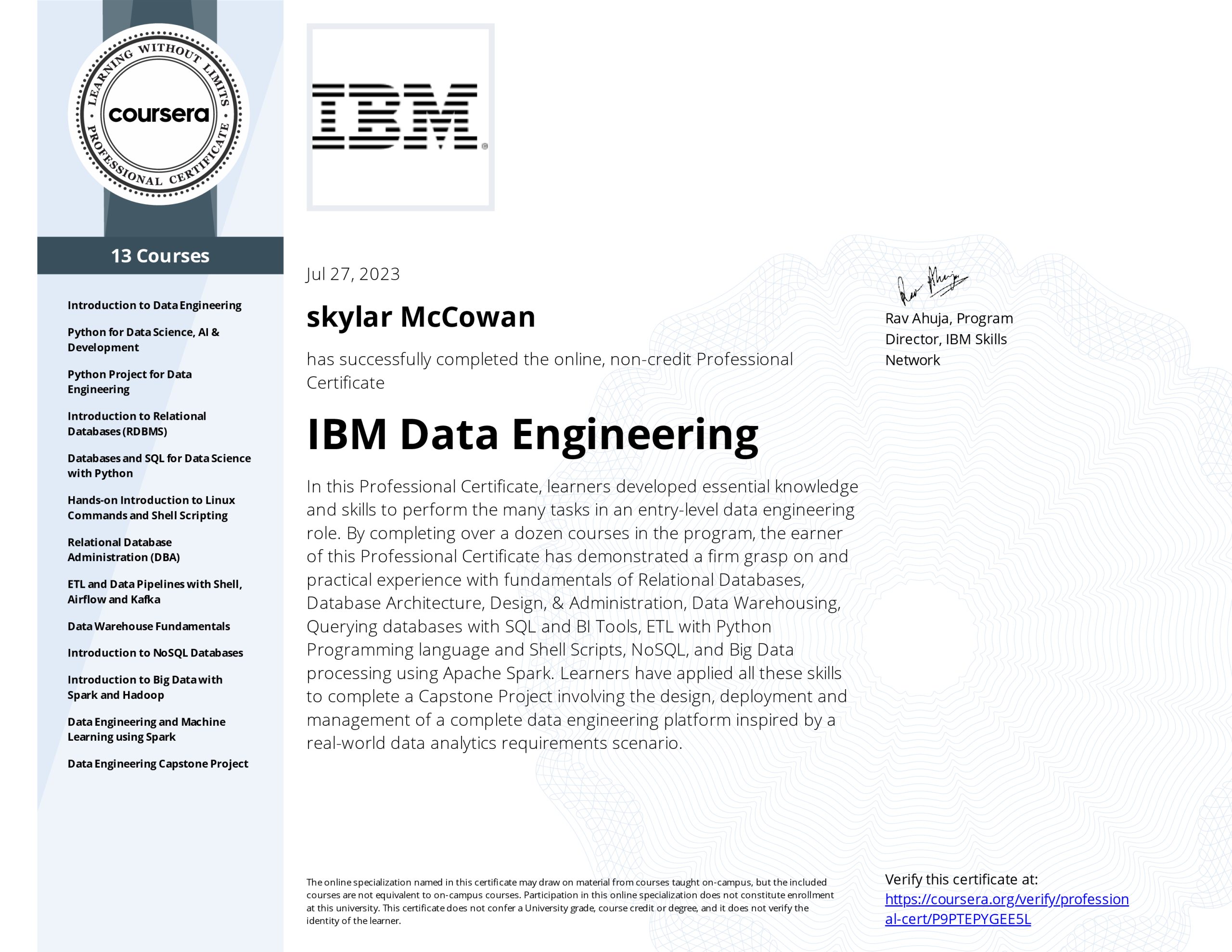
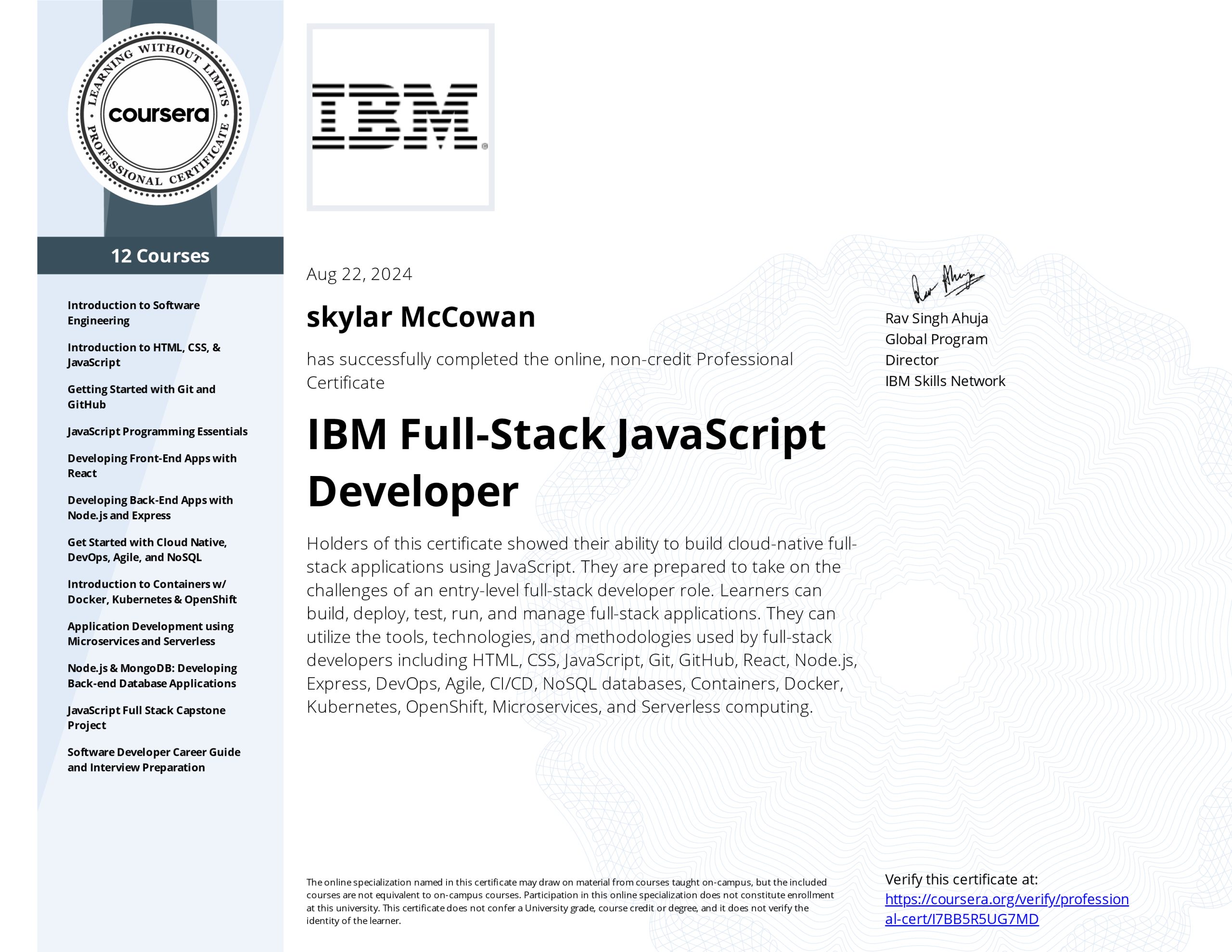
Full-stack js developer
The IBM Full-Stack JavaScript Developer Professional Certificate is an in-depth program that teaches front-end and back-end development with modern JavaScript technologies. Covering HTML, CSS, JavaScript, React, Node.js, and MongoDB, it equips learners to build, deploy, and manage cloud-native full-stack applications. The program emphasizes hands-on projects, enabling participants to develop responsive websites and scalable server-side apps while building a portfolio that demonstrates their skills for a career in full-stack development.
AI Engineer
The IBM AI Engineering Professional Certificate is a hands-on program that builds practical skills in machine learning and deep learning. Covering topics like supervised and unsupervised learning, neural networks, and popular ML algorithms, it teaches learners to build and deploy models using Python libraries such as Scikit-Learn, TensorFlow, and PyTorch. Projects in computer vision, NLP, and recommendation systems help learners gain real-world experience and create a portfolio showcasing their AI engineering capabilities.
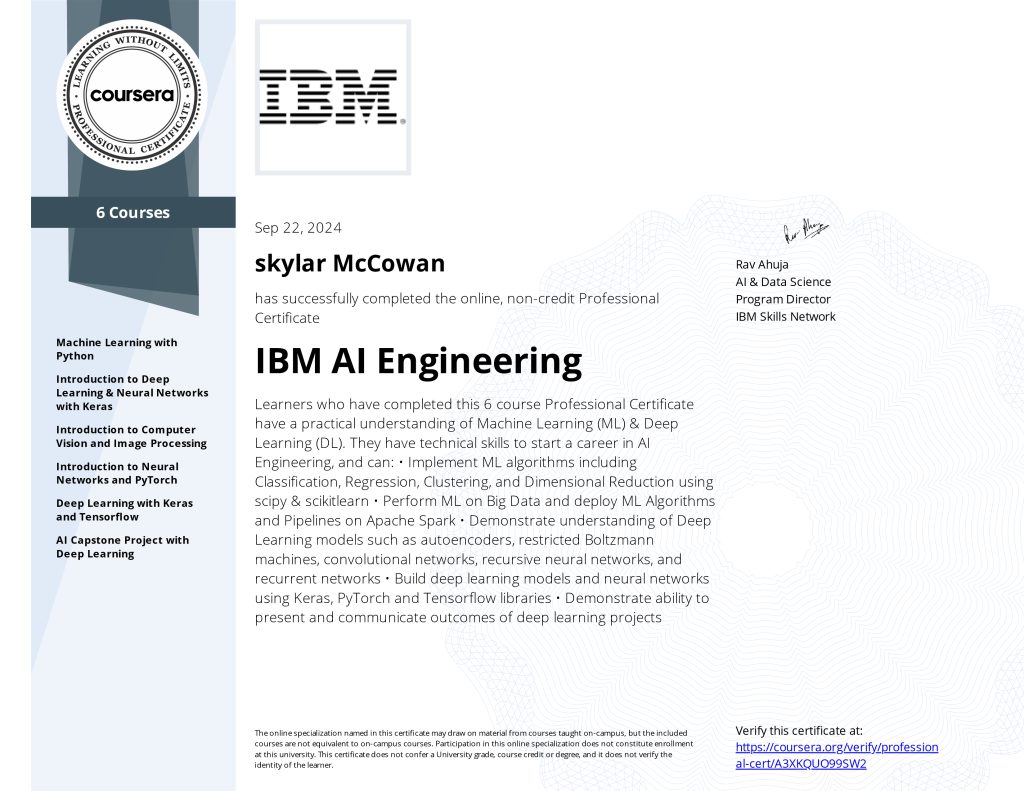
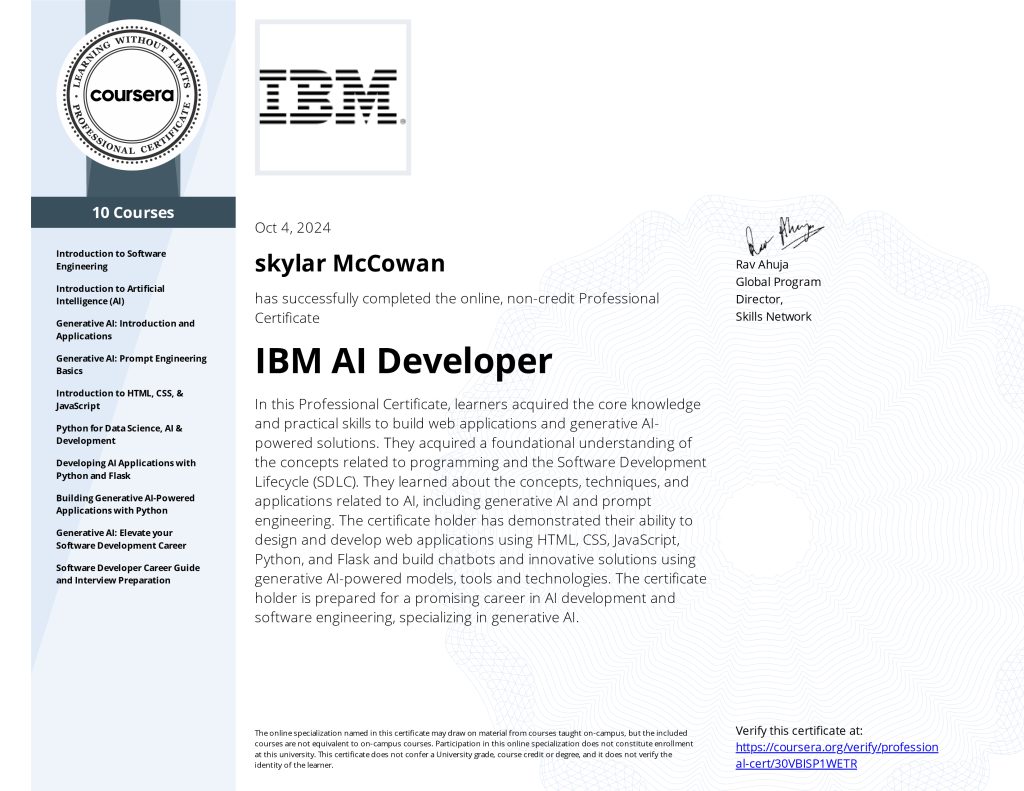
AI Developer
The IBM AI Developer Professional Certificate trains learners to design, build, and deploy AI-powered applications. Covering AI fundamentals, chatbots, computer vision, and speech recognition, it provides hands-on experience with tools like Watson AI services and deep learning frameworks. The program helps learners create real-world AI solutions, preparing them to integrate AI features into web and mobile apps.
Docker Certified Associate
The Docker Certified Associate (DCA) certification is designed for IT professionals with 6–12 months of Docker experience. It covers essential topics such as container orchestration, image management, networking, security, and storage. The certification demonstrates your proficiency in Docker and your ability to apply best practices in containerized environments.
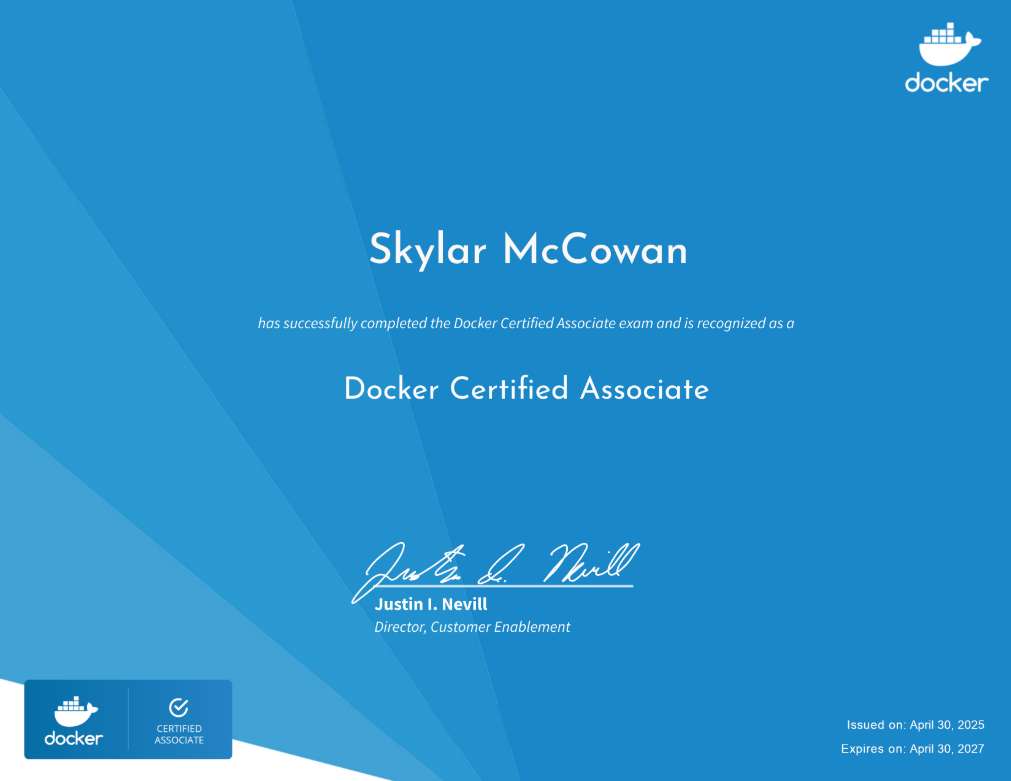
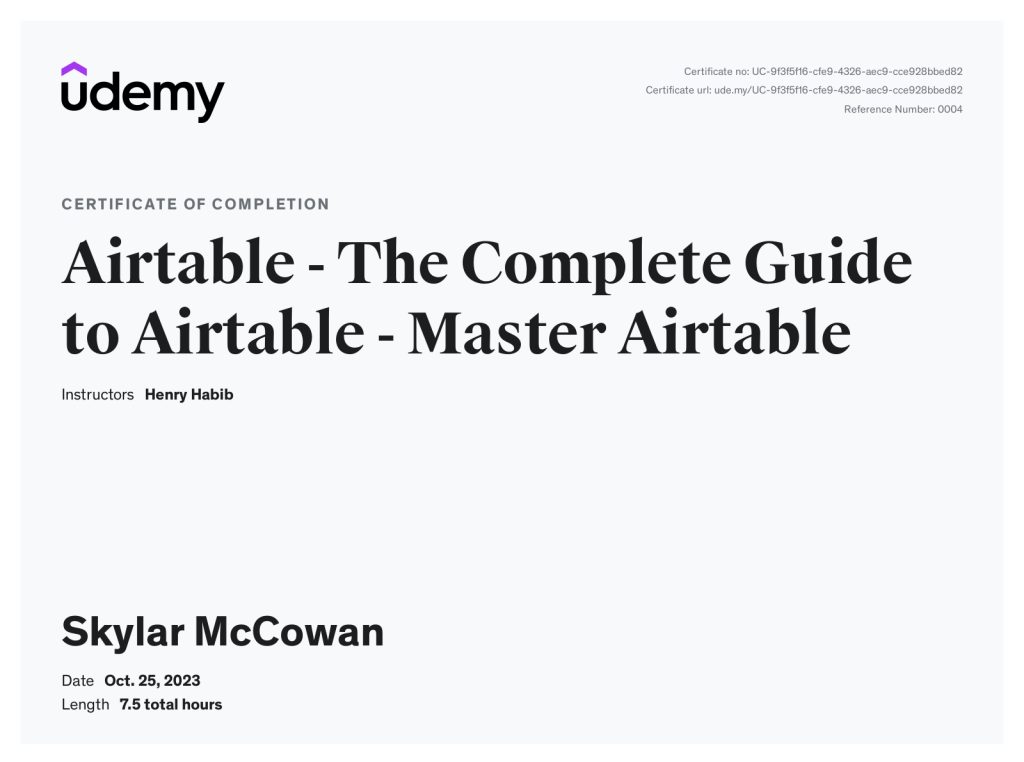
Airtable
The Udemy Airtable Master: The Complete Guide to Airtable course is a comprehensive program designed to teach users how to build powerful databases, manage workflows, and automate processes with Airtable. Covering everything from Airtable basics to advanced features like blocks, integrations, and custom views, it empowers learners to create collaborative, efficient systems for personal or business use. ~8 hours of study.
Git & Git Hub
The Udemy Git and GitHub Masterclass is a practical course that equips learners with the skills to confidently use Git for version control and collaborate on projects using GitHub. Covering everything from core Git commands to advanced branching strategies and GitHub workflows, it prepares developers to manage codebases effectively and contribute to professional or open-source projects.
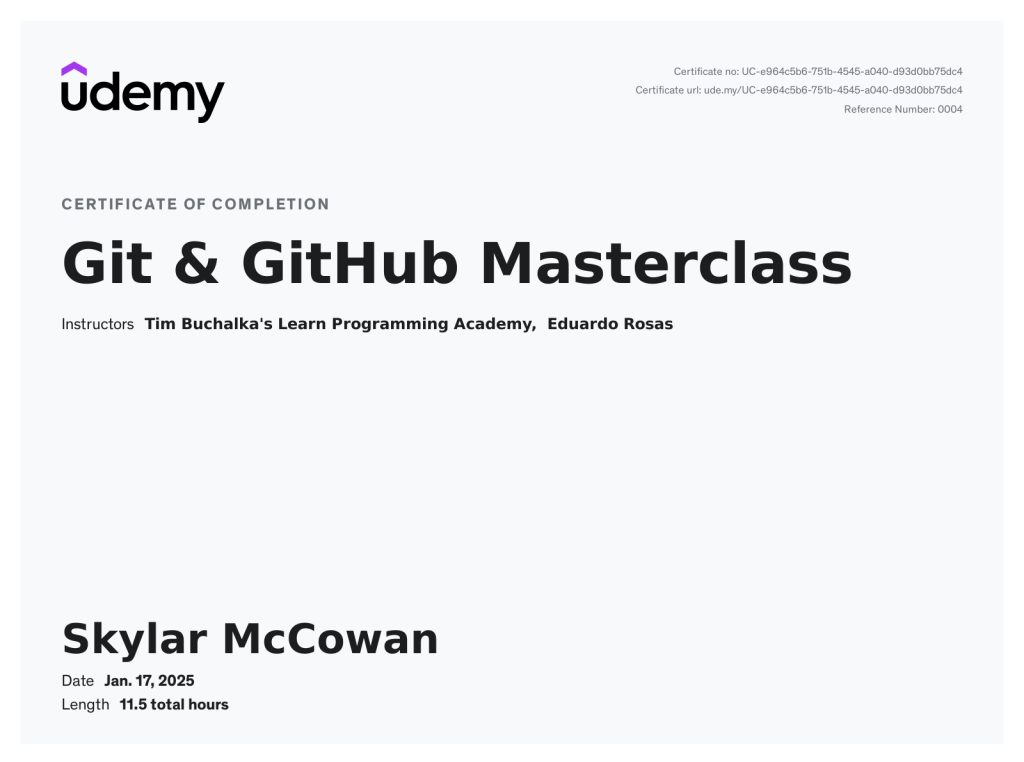
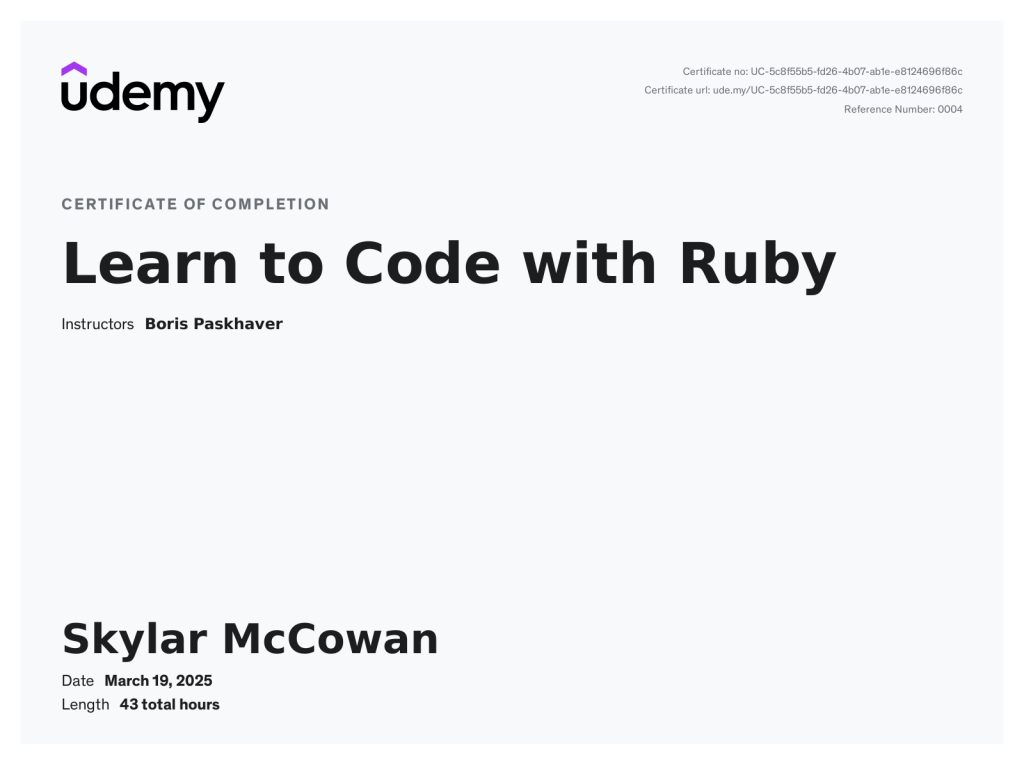
Ruby
“Learn to Code with Ruby” is a beginner-friendly course that teaches the fundamentals of programming using the Ruby language. With over 40 hours of content, it covers everything from basic syntax and data structures to object-oriented programming and real-world coding challenges. The course provides a solid foundation for aspiring developers, especially those interested in Ruby on Rails or backend web development.
Ruby
The Udemy course “Dissecting Ruby on Rails 5 – Become a Professional Developer” by Jordan Hudgens offers an in-depth, project-based approach to mastering Ruby on Rails 5. Spanning over 43 hours, it guides learners through building a production-grade Rails application from scratch, emphasizing real-world development practices, advanced features like ActionCable for real-time updates, and deployment strategies. This course is ideal for those aiming to deepen their Rails expertise and understand the intricacies of professional web application development.
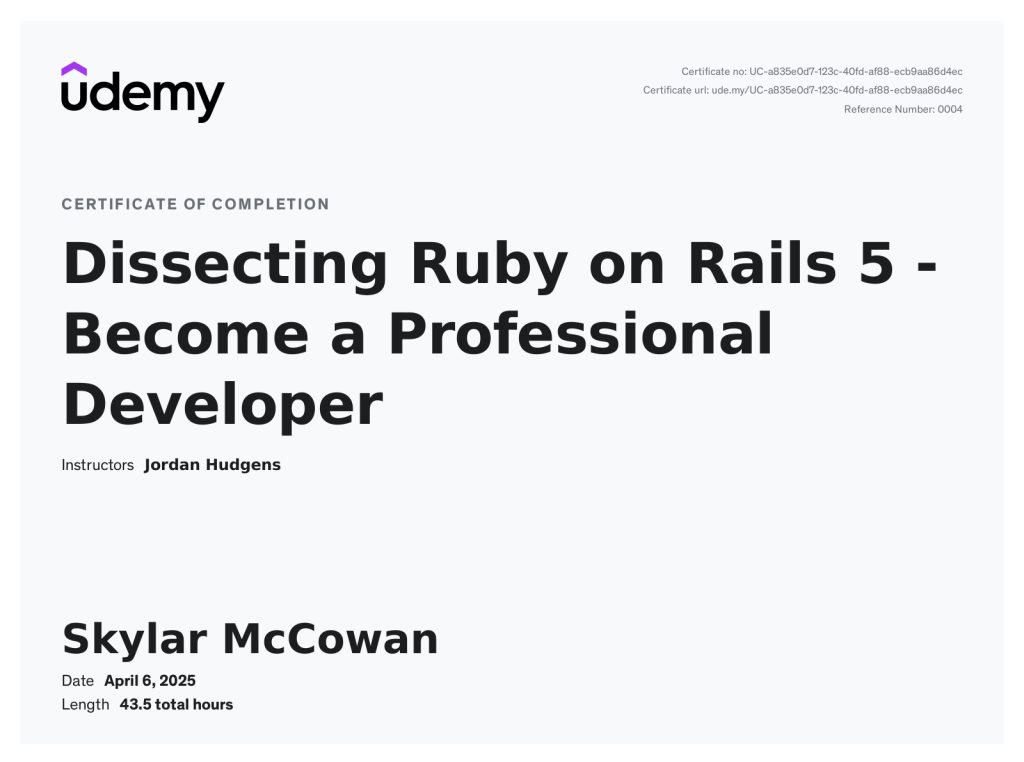
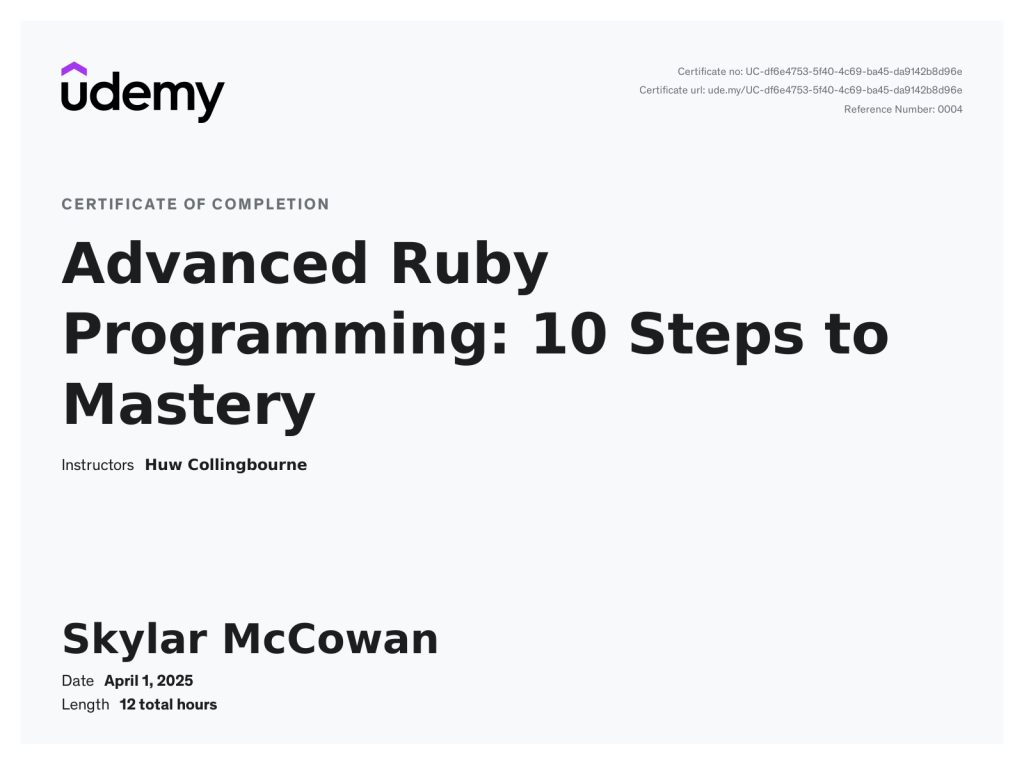
Ruby
The Udemy course “Advanced Ruby Programming: 10 Steps to Mastery” by Huw Collingbourne is designed for developers with foundational Ruby knowledge aiming to deepen their expertise. Spanning over 12 hours, the course delves into advanced Ruby features such as metaprogramming, concurrency, and dynamic programming techniques. It also includes a complimentary PDF of The Book of Ruby, enhancing the learning experience with comprehensive code examples and detailed explanations.
Ruby
The Udemy course “Comprehensive Ruby on Rails” by Jordan Hudgens is a project-driven program designed to guide learners through building a full-featured Rails application from scratch. With over 6.5 hours of content, it emphasizes practical skills such as user authentication, database modeling, form handling, and deploying applications to Heroku. The course is ideal for aspiring full-stack developers seeking hands-on experience with the Ruby on Rails framework.
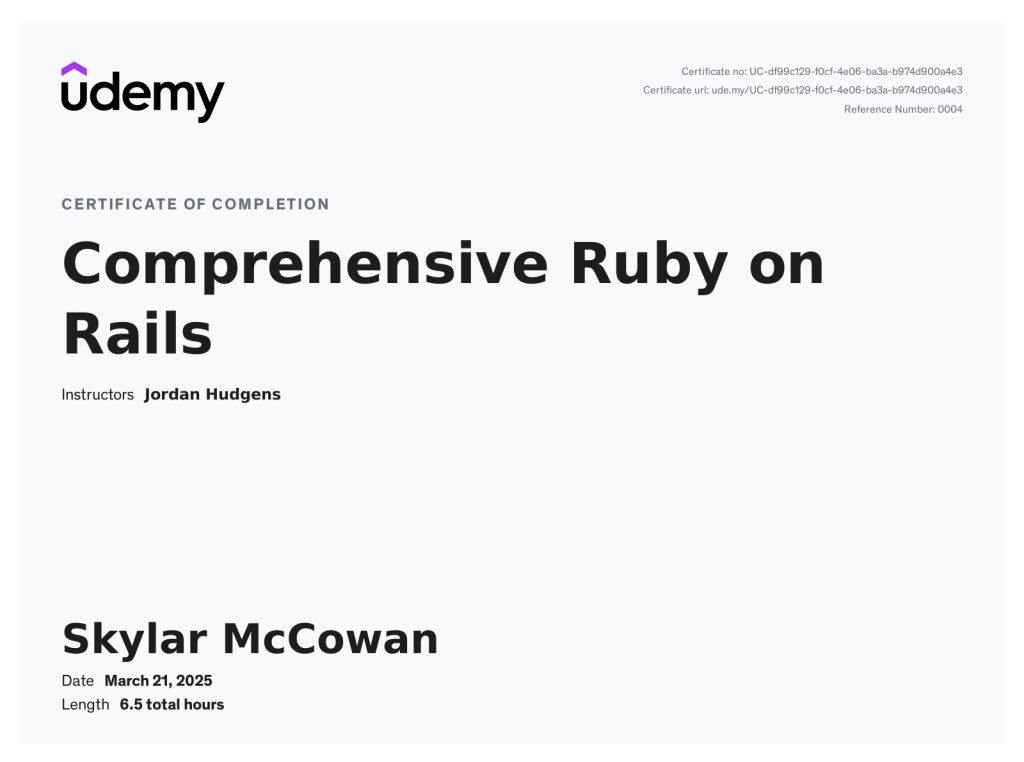
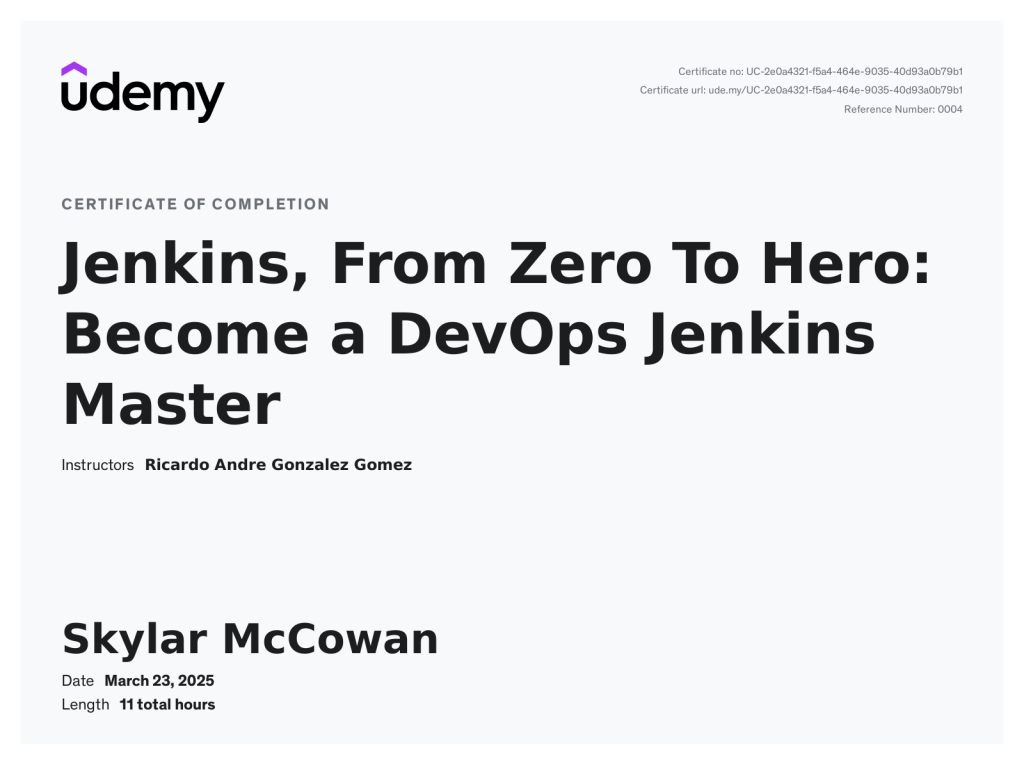
Jenkins
The Udemy course “Jenkins, From Zero To Hero: Become a DevOps Jenkins Master” by Ricardo Andre Gonzalez Gomez is a comprehensive program designed to take learners from foundational concepts to advanced Jenkins practices. With over 10.5 hours of content, the course delves into Continuous Integration and Continuous Deployment (CI/CD) workflows, integrating Jenkins with tools like Docker, Ansible, AWS, Git, and Maven. It’s tailored for developers, DevOps engineers, and system administrators aiming to automate and streamline software development processes using Jenkins.
Scripting
The Udemy course “Bash Scripting and Shell Programming (Linux Command Line)” by Jason Cannon is a comprehensive guide designed to teach learners how to write professional-level Bash scripts. With over 9 hours of content, the course covers everything from basic scripting concepts to advanced features, enabling students to automate tasks and solve real-world problems across Linux, Unix, and Mac systems.
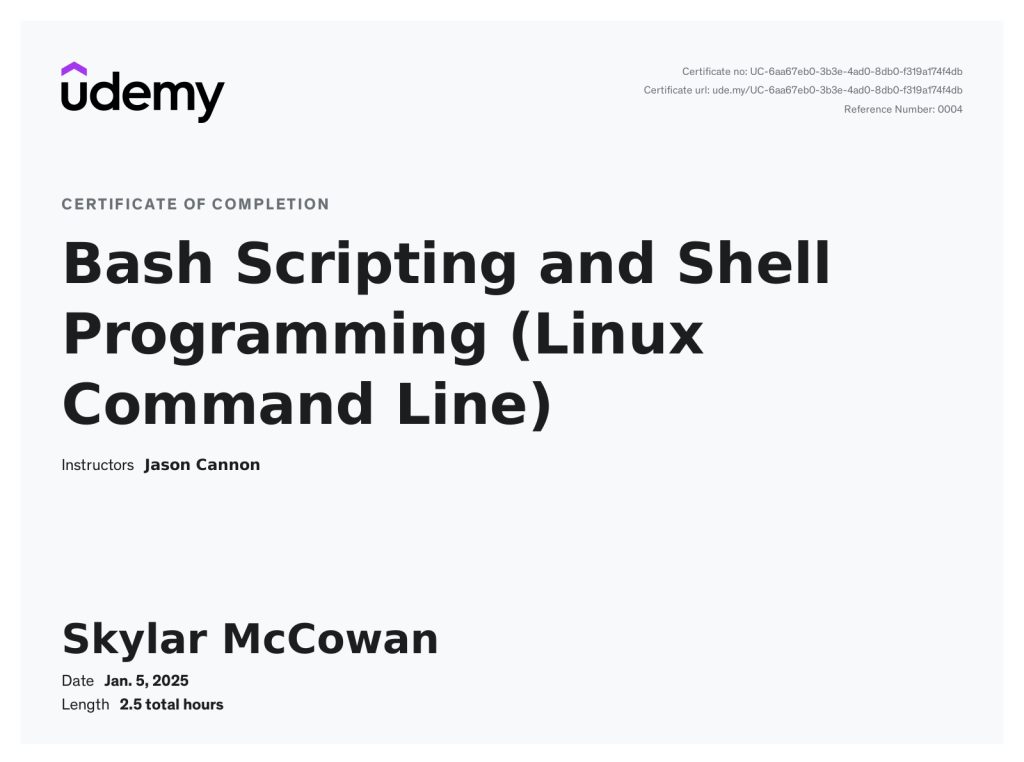
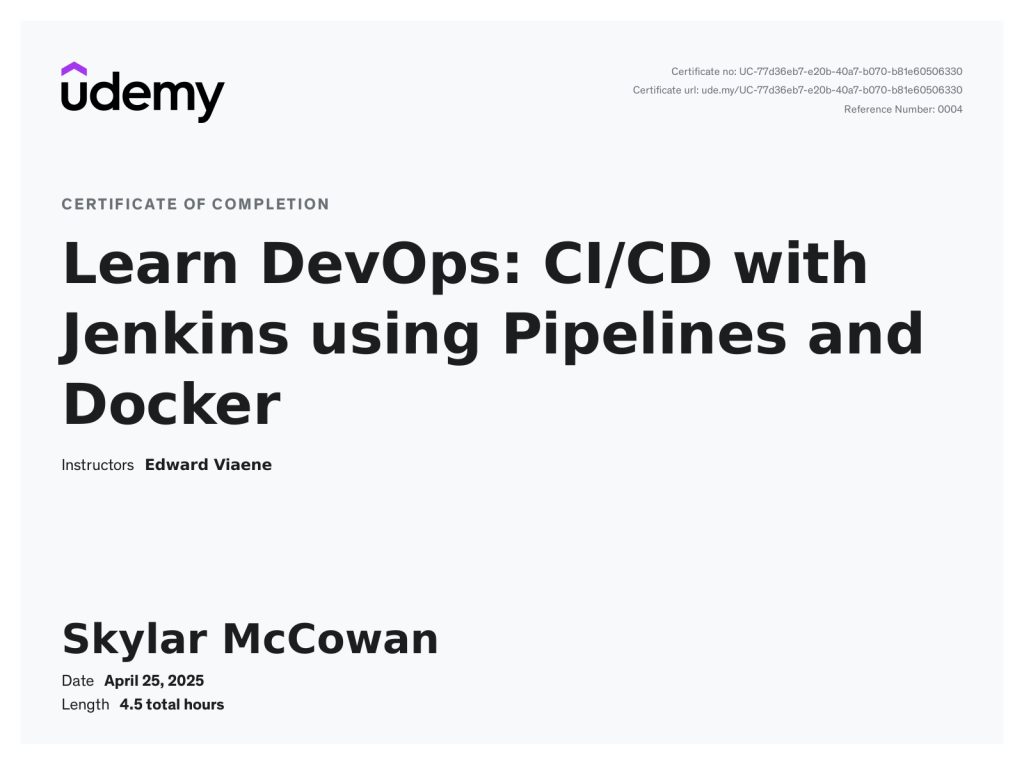
Jenkins
The Udemy course “Learn DevOps: CI/CD with Jenkins using Pipelines and Docker” by Edward Viaene offers a comprehensive guide to mastering Jenkins for Continuous Integration and Continuous Delivery (CI/CD). With over 8 hours of content, it emphasizes automating Jenkins jobs using Pipelines, Docker, and Jenkins Job DSL, providing hands-on experience in integrating Jenkins with popular tools like GitHub, Bitbucket, JFrog Artifactory, SonarQube, and OneLogin. This course is ideal for developers, system administrators, and DevOps engineers aiming to enhance their software delivery processes through automation and infrastructure as code.
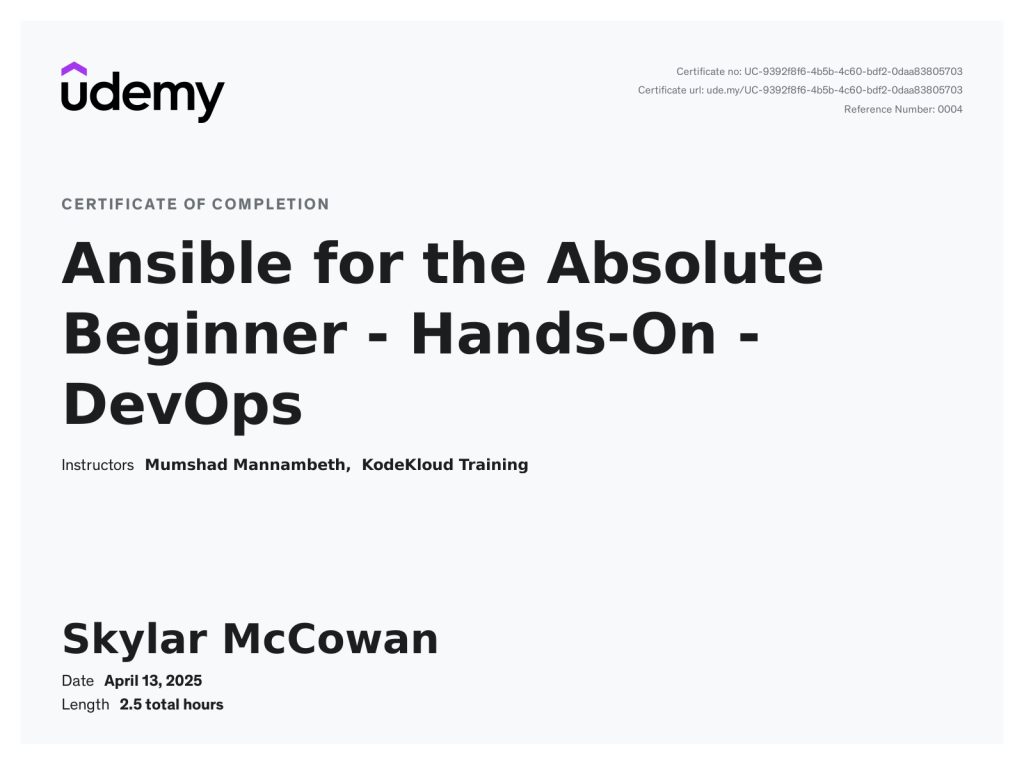
Ansible
The Udemy course “Ansible for the Absolute Beginner - Hands-On - DevOps” by Mumshad Mannambeth offers a comprehensive introduction to Ansible, tailored for those new to DevOps and IT automation. With a focus on hands-on learning, the course provides in-browser coding exercises to help learners grasp Ansible’s core concepts and apply them in real-world scenarios. Topics covered include YAML basics, inventory management, playbooks, modules, variables, conditionals, loops, handlers, templates, and roles. This course is ideal for system administrators, cloud infrastructure engineers, and automation engineers seeking to automate tasks without extensive coding knowledge.